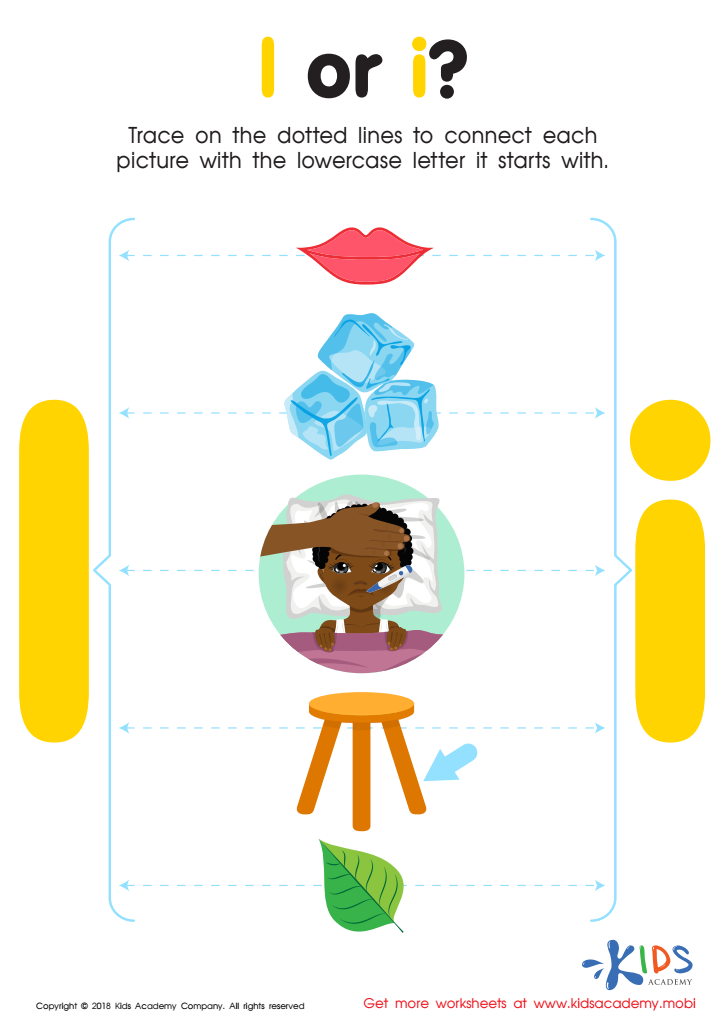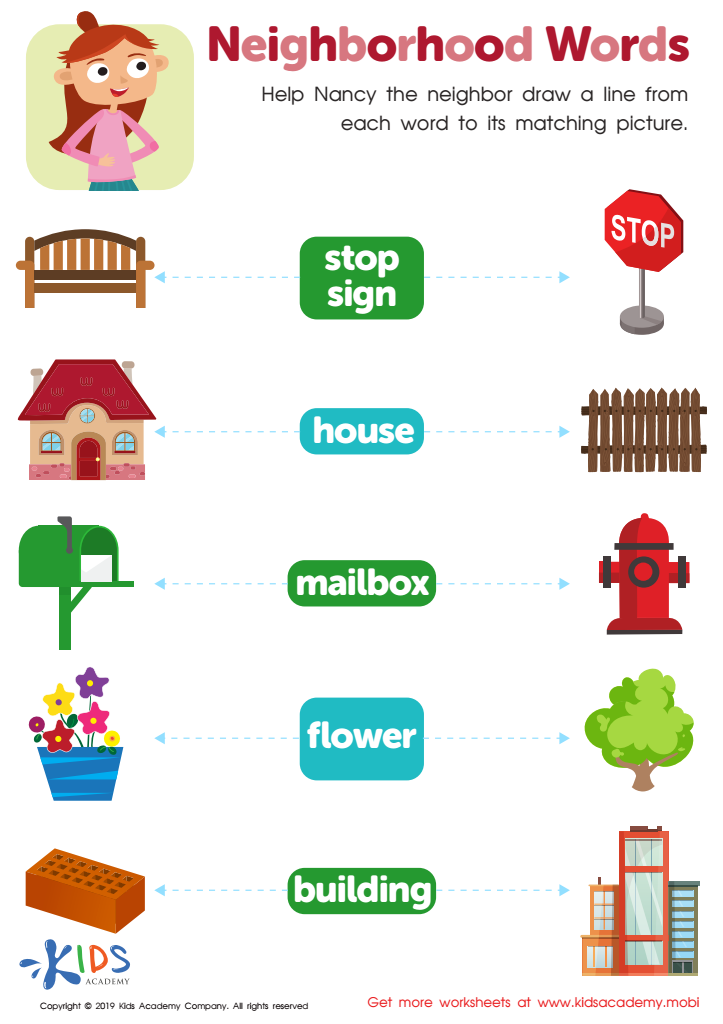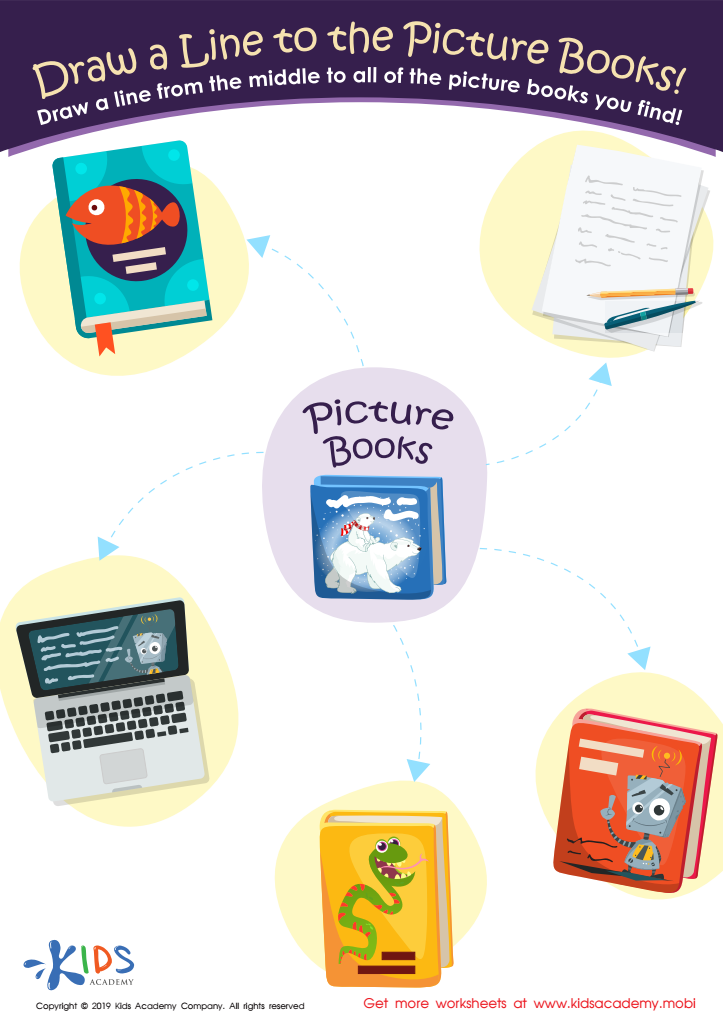Reading Skills Normal Reading Worksheets for Ages 3-4
3 filtered results
-
From - To
Explore our engaging Reading Skills Normal Reading Worksheets for ages 3-4, designed to foster early literacy in young learners. These worksheets introduce fundamental reading concepts through fun, interactive activities that capture children's attention. Each printable is crafted to enhance vocabulary, comprehension, and phonemic awareness while making learning enjoyable. Perfect for parents and educators alike, our resources support developmental milestones in reading readiness. From letter recognition to simple word exercises, these worksheets help lay a strong foundation for future reading success. Dive into our collection and ignite a love for reading in your little ones today!


l or i? Worksheet


Neighborhood Words Worksheet


Draw a Line to the Picture Books Worksheet
Reading skills developed in early childhood, specifically between ages 3-4, are foundational for a child's future academic success and overall cognitive development. During this crucial stage, children begin to understand the basics of language, including vocabulary, phonetics, and comprehension. Engaging children in reading activities not only stimulates their language skills but also enhances their ability to express thoughts and emotions effectively.
Parents and teachers play a pivotal role in fostering a positive reading environment. This involvement includes reading aloud, sharing stories, and encouraging children to ask questions about the content. Such interactions help to build listening skills, promote imagination, and develop critical thinking abilities.
Additionally, improving early reading skills has been shown to correlate with greater achievement in later school years. Children who enjoy reading at a young age are more likely to become proficient readers, leading to enhanced performance in other subjects.
Literacy activities also create bonding opportunities between parents, caregivers, and children, fostering social-emotional growth. Therefore, nurturing reading skills in this age group is not merely an academic pursuit; it's an essential aspect of holistic child development that lays the groundwork for lifelong learning.
 Assign to My Students
Assign to My Students
















